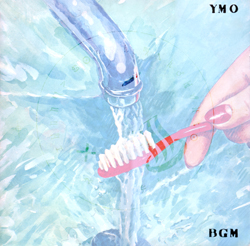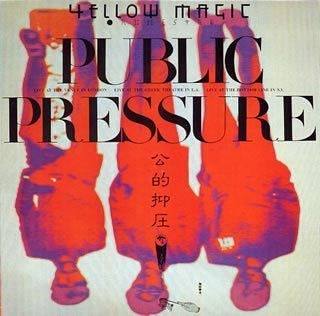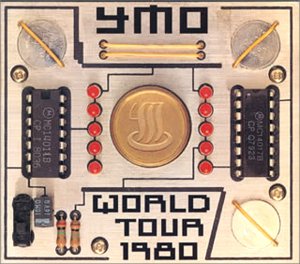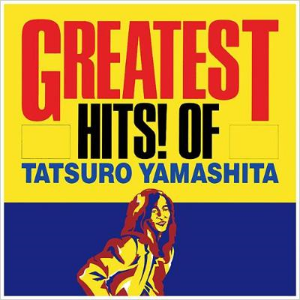
Ryuichi Sakamoto was a Japanese composer, pianist, record producer, and actor who pursued a diverse range of styles as a solo artist and as a member of Yellow Magic Orchestra (YMO). With his bandmates Haruomi Hosono and Yukihiro Takahashi, Sakamoto influenced and pioneered a number of electronic music genres.
Akiko Yano is a Japanese pop and jazz musician and singer born in Tokyo and raised in Aomori and later began her singing career in the mid-1970s. She has been called "one of the major musical talents of the Japanese popular music world", and her vocals and singing style have been compared to English singer Kate Bush.

Kazumi Watanabe is a Japanese guitarist. Other guitarists such as Luke Takamura and Sugizo have cited him as an influence.

Yellow Magic Orchestra was a Japanese electronic music band formed in Tokyo in 1978 by Haruomi Hosono, Yukihiro Takahashi and Ryuichi Sakamoto. The group is considered influential and innovative in the field of popular electronic music. They were pioneers in their use of synthesizers, samplers, sequencers, drum machines, computers, and digital recording technology, and effectively anticipated the "electropop boom" of the 1980s. They are credited with playing a key role in the development of several electronic genres, including synthpop, J-pop, electro, and techno, while exploring subversive sociopolitical themes throughout their career.

Haruomi Hosono, sometimes credited as Harry Hosono, is a Japanese musician, singer, songwriter and record producer. He is considered to be one of the most influential musicians in Japanese pop music history, credited with shaping the sound of Japanese pop for decades as well as pop music outside of Japan. He also inspired genres such as city pop and Shibuya-kei, and as leader of Yellow Magic Orchestra, contributed to the development and pioneering of numerous electronic genres.

BGM is the fourth studio album by Yellow Magic Orchestra, released on March 21, 1981. The title stands for "Background music", though Japanese TV and press advertising alternately used "Beautiful Grotesque Music". This album was produced by Haruomi Hosono. Recording started on January 15, 1981, in an effort to release the album by March 21, 1981. The album was the first of any kind to feature the Roland TR-808, one of the earliest programmable drum machines; YMO had already been the first band to use the device, featuring it on-stage as early as 1980. In addition to the TR-808, this was also their first studio album recorded with the Roland MC-4 Microcomposer.

Public Pressure is Yellow Magic Orchestra's first live album, released on February 21, 1980. It was their second number-one album in Japan, setting a record of 250,000 copies sold within two weeks of release.

Faker Holic: YMO World Tour Live is a live album by Yellow Magic Orchestra. The material on this live album was recorded during various concerts in 1979, and was released as a double CD in 1991. Several songs appeared on the 1979 live album Public Pressure, with Kazumi Watanabe's guitar parts overdubbed with keyboards and Yukihiro Takahashi's vocals replaced with those re-recorded later in studio. This album restores Watanabe's guitar parts. "Kang Tong Boy" is a song by Akiko Yano, who performed additional keyboards and backing vocals on this tour.

Hideki Matsutake is a Japanese composer, arranger, and computer programmer. He is known for his pioneering work in electronic music and particularly music programming, as the assistant of Isao Tomita during the early 1970s and as the "fourth member" of the band Yellow Magic Orchestra during the late 1970s to early 1980s.

Change is the 12th studio album by Japanese singer-songwriter Miyuki Nakajima. It was released in April 1985. The album comprises nine tracks originally written for other singers, including "Kamome wa Kamome," which is known as one of the signature songs for Naoko Ken, and "Sparrow (Suzume)", which became the sole top-ten charting solo single for ex-Pink Lady member Keiko Masuda.

UC YMO: Ultimate Collection of Yellow Magic Orchestra is a compilation album by Yellow Magic Orchestra. The songs were selected by keyboardist and pianist Ryuichi Sakamoto. The album was also released as a premium edition. The premium edition came with a long-sleeved white shirt emblazed with the yMo logo as well as a yMo bandana that the band wore on the 1980 world tour 'From Tokio to Tokyo', along with a special Liner Notes Booklet and an autographed print by drummer and sometimes singer, Yukihiro Takahashi. It was cataloged as MHCL 291-4 and sold in Japan for 21,000 yen.

Neo Geo is a 1987 album by Ryuichi Sakamoto. The term "neo geo", or "new world", is derived from Sakamoto himself as a way to describe worldwide musical diversity in regard to genre.

"Behind the Mask" is a 1979 song by the Japanese synth-pop group Yellow Magic Orchestra. The composer, Ryuichi Sakamoto, wrote the first version for a television commercial. A new version with lyrics by Chris Mosdell was released on the 1979 Yellow Magic Orchestra album Solid State Survivor. In the US and the UK, "Behind the Mask" was released as a single from the 1980 album X∞Multiplies.

WORLD TOUR 1980 is a live album by Yellow Magic Orchestra. It was recorded during the band's 1980 international tour. This is the only YMO live album to include songs originally released on X∞Multiplies; it also features six songs from YMO members made for other projects and two covers. It was released, with a book with photographs taken during the tour, as both a 2-CD set and a 3-LP set, which had a bonus track. "Jiseiki Hirake Kokoro" was originally made for a Fujifilm cassette commercial. It was included in Snakeman Show's self-titled album in mono so that the lyrics, which reference Fujifilm cassettes, could not be understood properly; it was presented here in stereo, and was included in the UC YMO compilation.

Paraiso is Haruomi Hosono's fourth solo album and Yellow Magic Band's first album. This album continues the tropical style of Hosono House, Tropical Dandy and Bon Voyage co., while being influenced by the music of Hawaii and Okinawa, incorporating electronic sounds that would be later developed on Hosono's and YMO's careers. YMO, The Yellow Magic Band at this point in time, was composed of Tin Pan Alley members and studio musicians, such as Hosono's former Happy End bandmate Shigeru Suzuki and future YMO members Ryuichi Sakamoto and Yukihiro Takahashi, as well as guitarist Hirofumi Tokutake.

Thousand Knives is the debut solo album by Japanese musician Ryuichi Sakamoto. The album is named after Henri Michaux's description of the feeling of using mescaline in Miserable Miracle.

Beauty is the eighth solo studio album by Japanese musician Ryuichi Sakamoto. Both a Japanese and an international version were released by Virgin Records in 1989 and 1990, respectively. The international release contains the track "You Do Me (Edit)" featuring singer Jill Jones, a song previously released as a single.

Summer Nerves is an album which recorded a so-called "Martial arts session" between Jazz fusion musicians and Japanese rock musicians, led by Ryuichi Sakamoto at the time of the formation of Yellow Magic Orchestra. "Martial arts session" of this album is regarded as a prototype of Kazumi Watanabe's "Kylyn session".

Go Ahead! is the third studio album by Japanese singer-songwriter Tatsuro Yamashita, released in December 1978.

Greatest Hits! of Tatsuro Yamashita is the first greatest hits album by Japanese singer-songwriter Tatsuro Yamashita, released in July 1982.



















